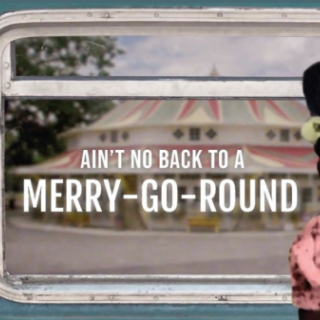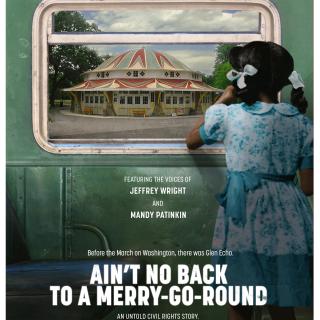Advertisement
Wow, this show sure is dope. If you don’t know any vintage hip-hop slang before seeing How We Got On, don’t worry. You’ll pick some up along the way.
And besides, you don’t have to be in tune with rap culture to understand what’s going on here. You just have to understand human nature.
Set in 1988 in the suburbs of an unnamed Midwestern city, Idris Goodwin’s assured play introduces us to a trio of 15-year-olds who are trying to define themselves through rap.
First up is Hank (David Glover), who boasts, “I got the skills to pay the bills,” but isn’t nearly as self-confident as he likes to pretend. When he learns a freshman at a nearby school is rhyming his way to suburban fame, Hank sets up a rap battle in an attempt to prove his dominance. But he then has doubts about his own battle-worthiness.
And well he might. The macho Julian (Rudy Frias), who bills himself as Vic Vicious, beats Hank so soundly that he’s reduced to slinking away with the crowd’s boos still ringing in his ears. It’s only later that Hank learns his rival cheated by using someone else’s words.
Strangely, the two eventually decide it’s in their best interest to combine forces, with Hank writing the lines and Julian performing them. They’re still trying to work out the kinks of their collaboration when a talented third rapper, Luann (Kayla Jackmon), enters the scene and upsets their fragile alliance.
What really complicates the teens’ efforts, however, is the interference of their respective fathers. Each parent, for reasons that go beyond his distaste for this new musical genre, questions his child’s devotion to rap. Playing all of the dads, in addition to narrating the show, is the deejay-like “Selector” (a chameleonic Wilma Hatton).
It’s Goodwin’s take on the ageless struggle between dominating fathers and their identity-seeking children that gives his play its universality. And it’s Drew Eberly’s sensitive direction of a committed cast that makes it so relatable. Every ounce of teenage anguish is precisely portrayed.
It’s not all angst, though. When the young rappers start rapping, either singly or collaboratively, the words and beats are joyful and irresistible.
Whatever the mood, Darin Keesing’s masterful lighting of Brad Steinmetz’s DIY-like set plays a big role in setting it.
How We Got On is said to be the first installment of a planned trilogy Goodwin calls the “Break Beat Plays.” I can hardly wait for the other two.
Available Light Theatre will present How We Got On through Feb. 22 in Studio One, Riffe Center, 77 S. High St. Show times are 8 p.m. Thursday-Saturday (except Feb. 13) and 2 p.m. Sunday. Running time: 1 hour, 30 minutes. Tickets are $20 in advance, “pay what you want” at the door. 214-558-7408 or avltheatre.com.
Take a musical walk in the park
If your Valentine’s Day goes as planned, what words will you use to describe it? “Romantic and passionate” or “pleasant and relaxed?”
If the latter is your goal, you may want to see A Grand Night for Singing. Conceived by Walter Bobbie, this jaunt through the Rodgers and Hammerstein songbook is certainly pleasant, especially as it’s staged by Short North Stage.
Michael Brewer’s set makes you think you’re visiting a quaint park on a summer day. All the while, a quintet of singers fills the air with tunes from musicals both familiar and unfamiliar: Oklahoma, South Pacific and The King and I, but also Allegro, Pipe Dream and Me and Juliet.
But aren’t some of these songs pretty passionate? Well, yes, potentially, but they seldom attain their full emotional impact here. That’s largely because the revue format takes them out of their original context and drops them into breezy encounters involving five generic men and women.
Working under Matt Clemens’s direction, the performers occasionally create musical and dramatic sparks despite the format’s limitations.
Cassie Rae, whose voice and stage personality may remind you of Bernadette Peters or other Broadway divas, is the most successful. Her rendition of “Something Wonderful” from The King and I is an Act 2 highlight.
Nick Harden, whose voice is far bigger than his stature, also does well. He and Rae put their pipes and feet to good use on another King and I number, “Shall We Dance?”
The remaining performers—Brian Hupp, Krista Stauffer and Dana De Lisa—have voices ranging from decent to very good, but they seldom inject much power or personality into the tunes. One exception is De Lisa’s rendition of Oklahoma’s “I Can’t Say No,” in which she captures the down-home naughtiness of the musical’s resident tramp, Ado Annie.
A few more numbers like these, and the revue might actually earn its titular adjective. As it stands, it should satisfy those who simply want to spend a pleasant evening in pleasant surroundings.
Short North Stage will present A Grand Night for Singing through Feb. 23 at the Garden Theater, 1187 N. High St. Show times are 8 p.m. Thursday-Friday, 2 and 8 p.m. Saturday and 3 p.m. Sunday. Running time: 2 hours (including intermission). Tickets are $25-$30. 614-725-4042 or shortnorthstage.org
Cassie Rea and Nick Hardin polka to “Shall We Dance” as Dana De Lisa, Brian Hupp and Krista Stauffer (from left) look on in A Grand Night for Singing (photo by Heather Wack)




